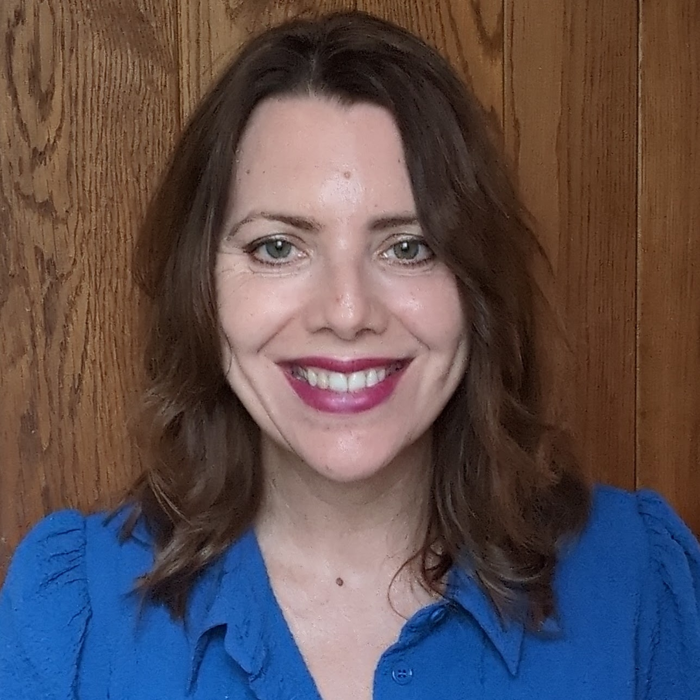Working with Neurodiversity: The Voice in Neurodiversity-Affirmative Music Therapy and other Music-based Work
Friday 31st January 2025, 12:00 PM - 2:00 PM (London Time)
The Neurodiversity Paradigm challenges the concept of autism, and related neurological differences such as ADHD and dyspraxia, as disorders or deficits, instead viewing neurodiversity (neurological diversity) as a natural and normal part of human diversity. Under the neurodiversity paradigm, neurotype (e.g. neurotypical, autistic etc.) is considered as an aspect of identity, in the same way as gender or sexuality, and neurodivergent forms of behaviour, communication and culture are valued in the same way as neurotypical forms of behaviour, communication and culture. In recent years, the music therapy profession has begun to consider the application of the neurodiversity paradigm to music therapy practice, in particular In relation to autism, and an increasing amount of literature embracing this perspective has been published.
This lecture, delivered from a lived experience perspective, will begin with an explanation of the key concepts around neurodiversity, the neurodiversity paradigm, and some prominent neurodiversity-informed theories, including a brief exploration of autistic communication and culture. We will look at ways to work musically from a neurodiversity-affirmative perspective, whether therapeutically or within other forms of music-based work or teaching practice. Particular consideration will be given to the use of the voice, both in terms of responding to the neurodivergent individual’s particular ways of using language, song and vocal sounds, and in terms of using one’s own voice (whether you identify as neurotypical or neurodivergent), and other forms of music, to communicate respectfully and effectively with neurodivergent people. I will speak about my own music therapy work with autistic people, which takes a collaborative approach with the client as much as possible, giving examples of how I use my voice and other forms of musical response in my therapeutic work.
Hilary Davies
Hilary Davies is a Health and Care Professions Council-registered Music Therapist, specialising in music therapy with autistic people.

Attend this course for as little as £22 as part of the Voice Professional Training CPD Award Scheme.
Learn MoreSorry, this is an archived short course...
We have plenty of upcoming short courses coming soon. See details of some of them below or look at the full list of short courses.

Tuesday 13th January 2026
5:00 PM - 6:30 PM
Tuesday 20th January 2026
5:00 PM - 6:30 PM
Tuesday 27th January 2026
5:00 PM - 6:30 PM
Tuesday 3rd February 2026
5:00 PM - 6:30 PM
Tuesday 10th February 2026
5:00 PM - 6:30 PM
(London Time)
Introduction to Postgraduate Academic Skills - Join Live!

Debbie Winter
Are you ready to elevate your academic journey? Hosted by our very own Debbie Winter, join our comprehensive Introduction to Academic Skills course, designed to equip you with essential tools and strategies for success in higher education. Perfect for bridging the gap between undergraduate and postgraduate study, this course offers a pathway to our full MA for students without an existing degree. We offer both live, interactive sessions and standalone, pre-recorded content.

Thursday 15th January 2026
5:00 PM - 7:00 PM
Thursday 22nd January 2026
5:00 PM - 7:00 PM
Thursday 29th January 2026
5:00 PM - 7:00 PM
Thursday 5th February 2026
5:00 PM - 7:00 PM
Thursday 12th February 2026
5:00 PM - 7:00 PM
(London Time)
Trauma-Sensitive Voice Professional Certificate with Dr Elisa Monti

Dr Elisa Monti
Updated for 2026, this five-part certificate course is designed to help participants learn the theory and practice of trauma-sensitive approaches. The concepts and activities included are tailored to meet the needs of voice specialists who want to acquire more specific tools to navigate the space with their students and colleagues.

Monday 9th February 2026
5:00 PM - 7:00 PM
(London Time)
Certificate in Applied Voice Pedagogy with Adam Roberts

Adam Roberts
Spring Immersive - live and interactive learning! This 12-week online programme is designed for voice professionals committed to deepening applied voice pedagogy skills and advancing professional practice. The course offers a rich environment to reflect on your teaching philosophy and develop applied pedagogical techniques. It is ideal for voice teachers, coaches, therapists, and performers seeking to bridge foundational knowledge with practical, student-centered applications.
